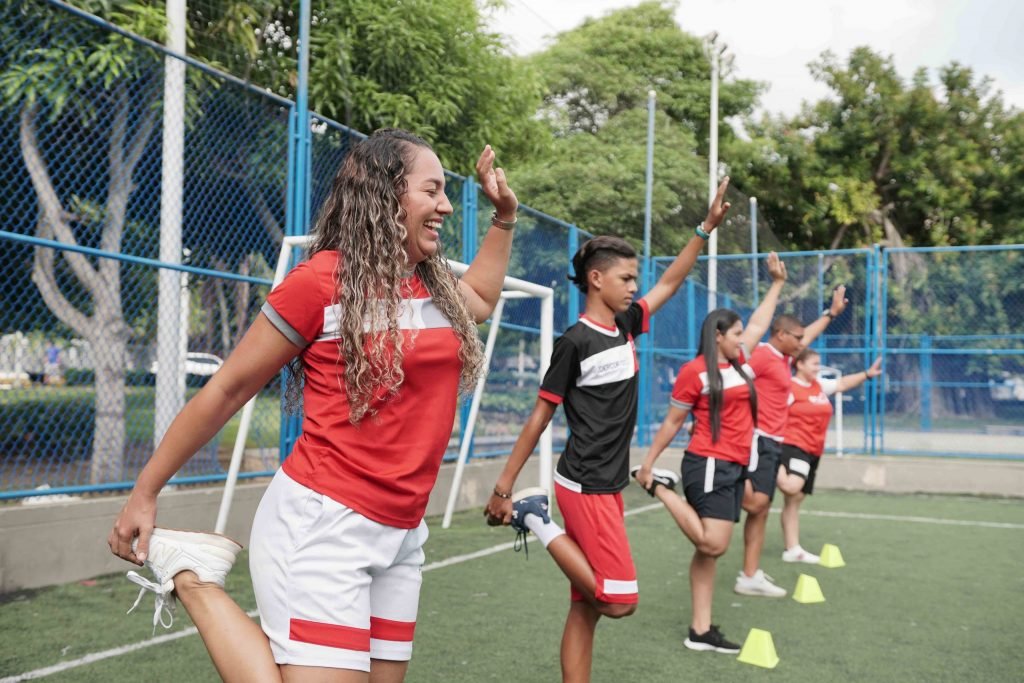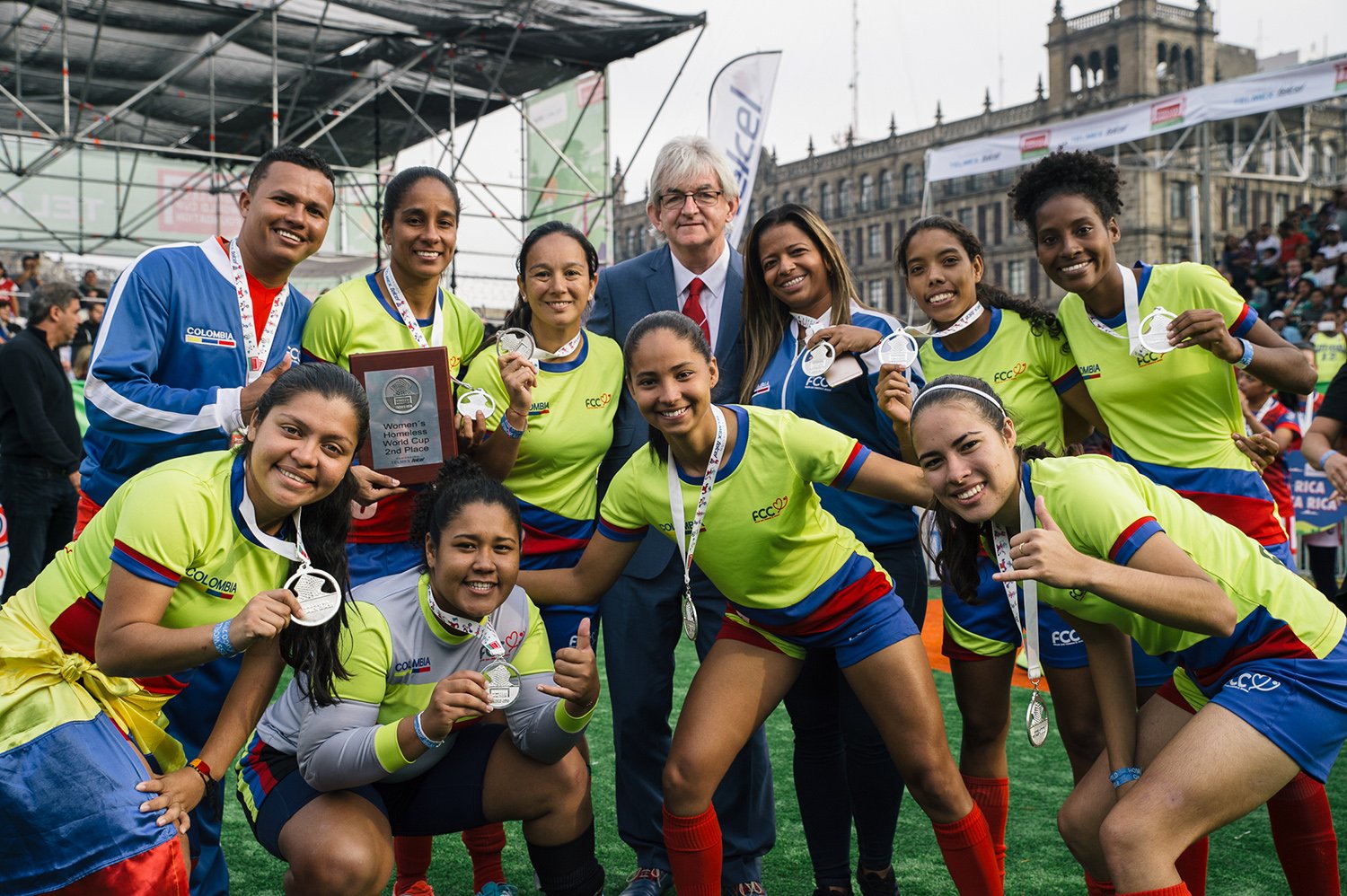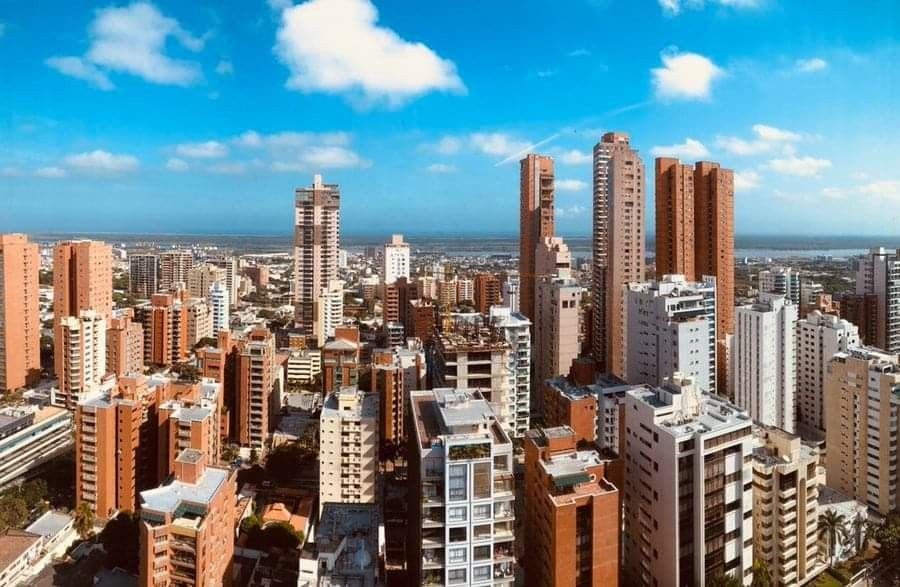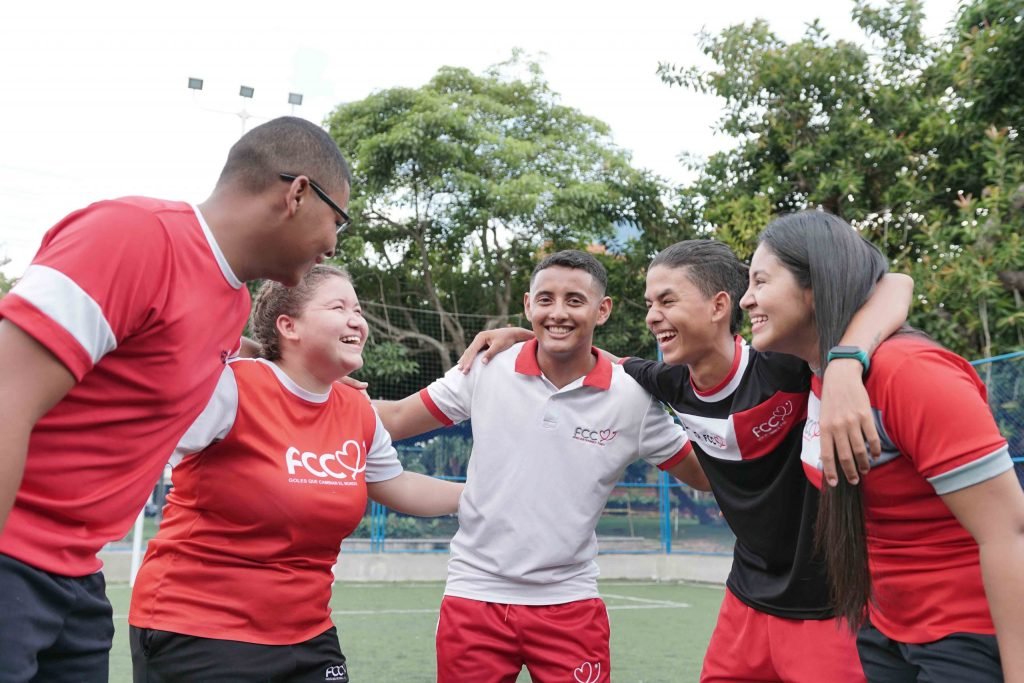More than a Game: Colombia
|Photo: Futbol Con Corazon
Football with heart: Transforming communities in Colombia
Futbol Con Corazon (FCC) – Football with Heart – is our partner in Colombia. Since 2007, they have been working with young people and children to develop life skills through football.
We spoke to Carlos Perez, Executive Director for Colombia, and Digital Director Juan Camilo Cifuentes about how football is creating social change in Colombia.
Starting in La Paz, a community in Barranquilla, with 300 children and young people, Futbol Con Corazon have expanded across the country and have now supported more than 20,000 children and young people. In 2021 they trained 200 new young leaders, former participants who are now inspiring the next generation.
“Young people have the power to change our communities if you give them the right tools.”
This is the lasting legacy of one of their young leaders, Yecid Bolaño. He was tragically killed in the middle of the night by someone who had broken in to steal his motorbike. He first joined the programme as a participant aged 13 and after 6 years became a young leader. Juan and Carlos are determined his legacy will live on.
|“Young people have the power to change our communities if you give them the right tools.” Image: Futbol Con Corazon
DISPLACEMENT & VIOLENCE
Violence is common in the communities where FCC work. 30-40% of their participants and their families don’t have a fixed address. They are forced to move from relative to relative because of protection money demanded by gangs or armed groups in control of the area. If they don’t move, they could be killed.
Internal displacement is a major issue in Colombia, nearly 5 million people are displaced because of violence and conflict according to the Internal Displacement Monitoring Centre. This equates to nearly 10% of the 50.3 million population. Despite the Peace Agreement signed between the FARC and the government in 2016, illegal armed groups are still active across the country.
Juan explains that at FCC they “create a protected environment” where young people can feel safe and learn new skills and gain experience while having the chance to play football. Their main programmes run after school, aiming to reduce the opportunities gangs have to recruit new members and remove the temptation of young people being drawn into drugs and alcohol.
Carlos told us, that it’s not a lack of wanting that has left young people struggling to succeed; “I see it in their eyes, this hunger to be a better person. They are screaming for opportunities.”
“Our work besides working with young people is empowering communities and creating systematic change. Creating capacity in the community, promoting leadership, improving everyday despite the problems.”
|The Colombian women’s team came second at the Homeless World Cup in Mexico in 2018. Image: Daniel Lipinski
YOUTH UNEMPLOYMENT
One of the major problems is unemployment. Corruption, bribery and poor management of resources are some of the causes. Statistics from the CIA World Factbook found that a quarter of the youth population (14-25) are unemployed.
In Barranquilla, an industrial city on the Caribbean coast where FCC started, the figures are even more stark. The most recent government figures are from 2015. They found 77% of young people weren’t studying, only 20% completed elementary school and only 1 in 5 young people graduated from high school. Juan says since then it has only got worse. He explains, “a local partner says a good day is when they have rice to give the children and
young people.”
Poverty is a major problem for many of the young people and their families. Struggling to have enough money for food, water and electricity, it’s unsurprising that young people often turn to a quick solution to make money. According to Juan, in many communities the easiest way to earn money is through drugs. The average annual salary in Colombia is $5,780. A young person can get $8-10 each time they transport drugs. With a few transports a day, this can quickly add up to a substantial amount of money for them.
|Futbol CC started their work in Barranquilla, an industrial city on the Caribbean coast.
THE STATE OF HOUSING
In addition to the corruption in the country, people are still recovering from more than 60 years of war over the drugs and arms trade, which despite best efforts, haven’t been resolved. Housing is an additional problem. While it’s possible to get loans, job shortages leave people unable to keep up with loan payments. Interest levels are very high, resulting in people ending up in high levels of debt.
The government has brought in a new programme to help young people aged 18-25 access a low interest loan to help them to buy a house. Despite this, the lack of jobs in the communities where FCC work makes it impossible for young people to be able to keep up with payments.
Juan asks the question; “If you don’t have a job, how will you be able to keep up with the loan payments?” Juan said young people in the
communities feel lost: “It’s really tough, they are hopeless. They don’t see a clear future and feel like no one is listening to them.” This, he explains, is why a lot of them take “a bad way.” Instead, he explains: “they prefer to make $20 and receive something in the short term, rather than planning
for the future.”
“AN ARMY OF SOCIAL ENTREPRENEURS”
One solution they’ve found is to create an “army of social entrepreneurs” who will help transform their communities. Their programme Football for Entrepreneurs gives young people between 18-25 the skills and tools to be able to set up their own football academies. 15 academies have already been established by previous participants. They operate as franchises, charging players a small fee, less than $1, to take part. But what more needs to be done? Juan says they need access to training, low-cost programmes and an opportunity to develop their skills for the future. Young people also need to look beyond their neighbourhoods and gain a global perspective.
|One solution they’ve found is to create an “army of social entrepreneurs” Image: Futbol Con Corazon
“We have a really big vision. The main challenge is how we make the power of football more accessible to more people. We are working hard to position football as a force of social change.”
Their focus, as well as working with young people, is empowering the communities to create systemic change. In spite of the problems they face, Juan and Carlos are determined to continue to work together to improve the everyday life for their participants.
Carlos explains: “If we work together, we can change a lot of communities. If we work as a team, we can climb the mountains.”
For the young participants, the focus is clear; to create a safe environment for their family and friends, both on and off the pitch.
Find out more about Futbol Con Corazon and their work transforming communities in Colombia.





